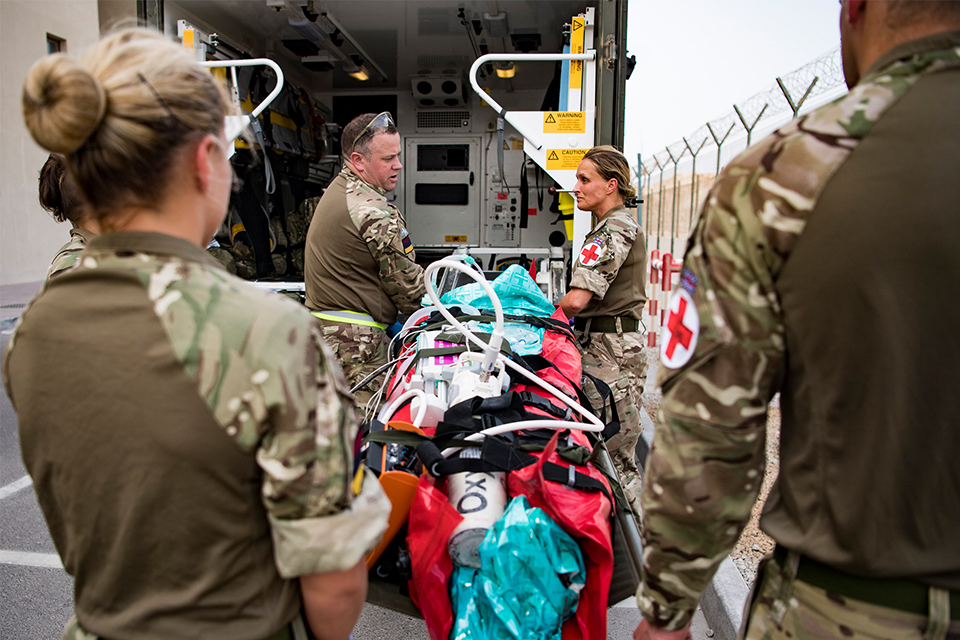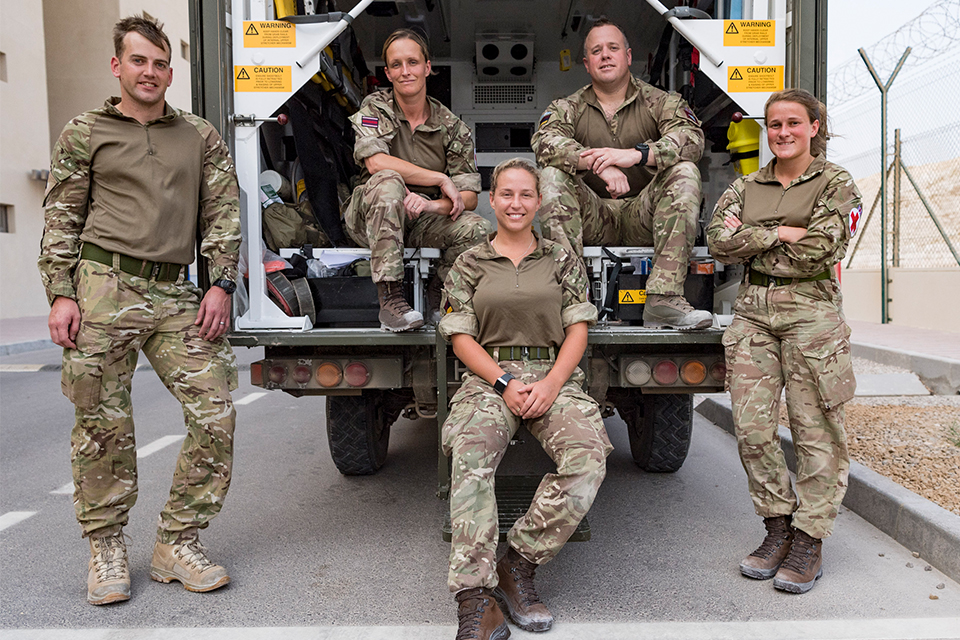News story: Defence Ministers re-affirm Scotland’s central role in UK defence
Defence Ministers Tobias Ellwood and Stuart Andrew toured Scotland this week, visiting some of the UK’s most important military bases that have had billions of pounds of investment in recent months.
Minister for Defence People & Veterans, Tobias Ellwood, visited RAF Lossiemouth where he saw progress being made on the £132 million invested in the site ahead of the arrival of the 9 new P-8A Poseidon aircraft.
The new Lossiemouth facility will be completed by 2020, to coincide with initial operating capability of the Poseidon aircraft being available in the UK.
These state-of-the-art submarine hunters will help keep Scotland and the rest of the UK safe and secure from intensifying threats, protecting the new aircraft carrier and nuclear deterrent.
The aircraft will work alongside eight cutting-edge new Type 26 warfare frigates, which also have their roots firmly in Scotland.
Minister for Defence Procurement Stuart Andrew met with BAE business leaders as he visited BAE Systems’ yard in Govan, which is producing the frigates.
The Type 26 frigate programme will sustain 1,700 BAE Systems jobs in Scotland and safeguard 4,000 jobs across the wider UK supply chain until 2035.
Stuart Andrew’s visit comes just after a year since the first steel was cut on HMS Glasgow, marking the beginning on the build of Britain’s first Type 26 frigates.
The importance of this programme was also emphasised when Defence Secretary Gavin Williamson visited the site alongside his Australian counterpart Marise Payne last month.
Gavin Williamson outlined how Australia’s decision to choose BAE Systems to build nine British warships could be worth £20 billion hailed as the biggest Naval ship deal for a decade.
Tobias Ellwood and Stuart Andrew also visited HMNB Clyde that has recently had £1.3 billion invested in the infrastructure that will see it become the home of all the Royal Navy’s submarines by 2020.
The Ministers capped off their visit in Scotland at the Royal Edinburgh Military Tattoo. This year the Tattoo will celebrate the 100 year anniversary of the RAF with the ‘Sky’s the limit’ theme.
Defence Minister Stuart Andrew said:
From the Scottish shipyards building our cutting-edge new Type 26 Royal Navy fleet, to our brave servicemen and women tirelessly working to protect our national security, Scotland is crucial to defence.
We invest £1.6 billion every year in the Scottish economy, supporting thousands of jobs and hundreds of businesses, as our industry partners pioneer world-leading technology to ensure our forces remain a step ahead of our adversaries.
This is my first visit to Scotland as Minister of Defence Procurement and I am extremely proud of the work going on in every corner of the nation to ensure our country remains safe in a climate of intensifying threats.
The visit comes at an important time for defence’s footprint in Scotland. Under the Better Defence Estate strategy, the department is reducing the Scottish estate to 14 key sites.
Reducing the number of estates will allow for greater investment in the key sites such as HMNB Clyde, RAF Lossiemouth, as well as building the new radar facility Saxa Vord in Shetland.
It will also benefit local economies as the Department will work closely with Local Authorities and the Scottish Government to make the best use of the released land.

